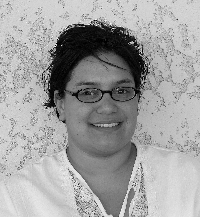So, tell me what's happening on Dec. 2.
We're asking community members to come and register. The city is doing some special stuff that day when it comes to the registry, like bringing in extra people to help (registrants) through the process. There's a form you and your partner fill out, which has to be notarized. Then, you go to the city and pay $50, and that $50 has to be cash, check or a money order. At roughly 5 p.m., we'll have the City Council speak, as well as some other politicians and community members. We'll have a cake cutting at 5. It's just an all-around celebration.
Why is this such a big deal?
This is a huge deal for Arizona, because this is the only city that has a domestic partnership registry. Once again, Tucson is leading the march for equal rights in Arizona. I think the number is around 60 cities and towns in the country with domestic partner registries. Each has different rights attached to them.
What goals will this registry help the LGBT community reach?
America is finally acknowledging not only same-sex couples, but couples who choose not to get married or who can't for whatever reason. It adds to the list that you can give to legislators or congresspeople and say, "Here's another city that acknowledges this," when you go and ask for marriage rights, or anti-discrimination laws, or fairness in housing laws. And it gets people talking about it, and the more rights we secure on city, county, state and federal levels, the more people will know about the inequalities GLBT people face.
Some people say things like this--and the recent ruling by the Massachusetts Supreme Court saying that gays and lesbians can't be discriminated against when it comes to marriage--will lead to a backlash. Are you afraid of a backlash?
There's always going to be a backlash. All of the civil rights movements have seen it anytime something like this happens, but it always swings the other way. I truly believe that most citizens don't want people being discriminated against. So do I fear a backlash? No. It's going to happen.
How many people do you anticipate will use the Tucson registry?
We anticipate a lot of people. On the day of Dec. 2, we're hoping we have 30-40 couples come out and register.
Will you be part of one of those couples?
Yes. My partner (Cathy Busha of Wingspan) and I will be registering, which is very exciting. We're excited to do it, not only because we're involved in the movement to secure equal rights for all people, but because this is a big win. It's something to celebrate.
What will the registry give the people who sign up?
Legally, it will give registrants family status at city facilities. The example we use is family swim passes. It also secures it so if either my partner or I go to the hospital, we can see each other. It'll give acknowledgement of the relationship, something we can't get at the state level. It also gives employers something to use (as proof of a union in terms of providing benefits).
This may be a weird question, but if a registered couple breaks up, do they have to get a divorce or a dissolution?
Yes, you have to get a dissolution. It's the same process as registering: You have to fill out a form and get it notarized, and you pay a small fee. There are other ways the partnership can be dissolved, such as if one partner gets married or dies. Also, there's a way for just one person to dissolve it if the other person moves away.
One last question: Some people say registries like this threaten traditional heterosexual marriage, or even family values. What do you say to that?
Well, anytime there is a discriminatory law on the books, it opens the door for violence. I think that (violence) threatens families and communities. The other part of it É (recently) in one the local newspapers, there was a letter by a woman who is a straight ally. She simply stated that this stuff doesn't threaten her marriage. The LGBT is just asking for equal rights, she said, and it was really touching to see that short, three-sentence-or-so letter.




